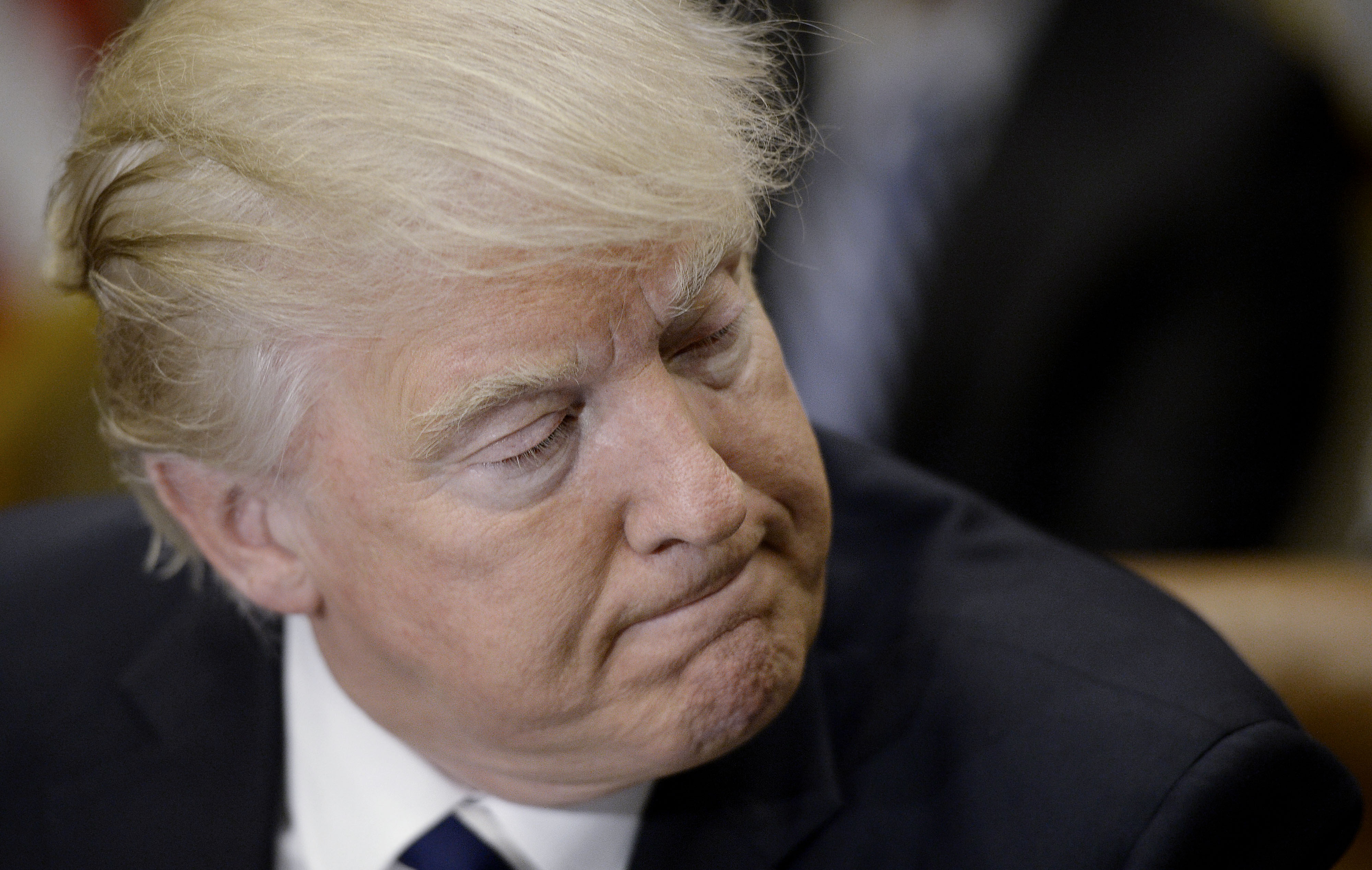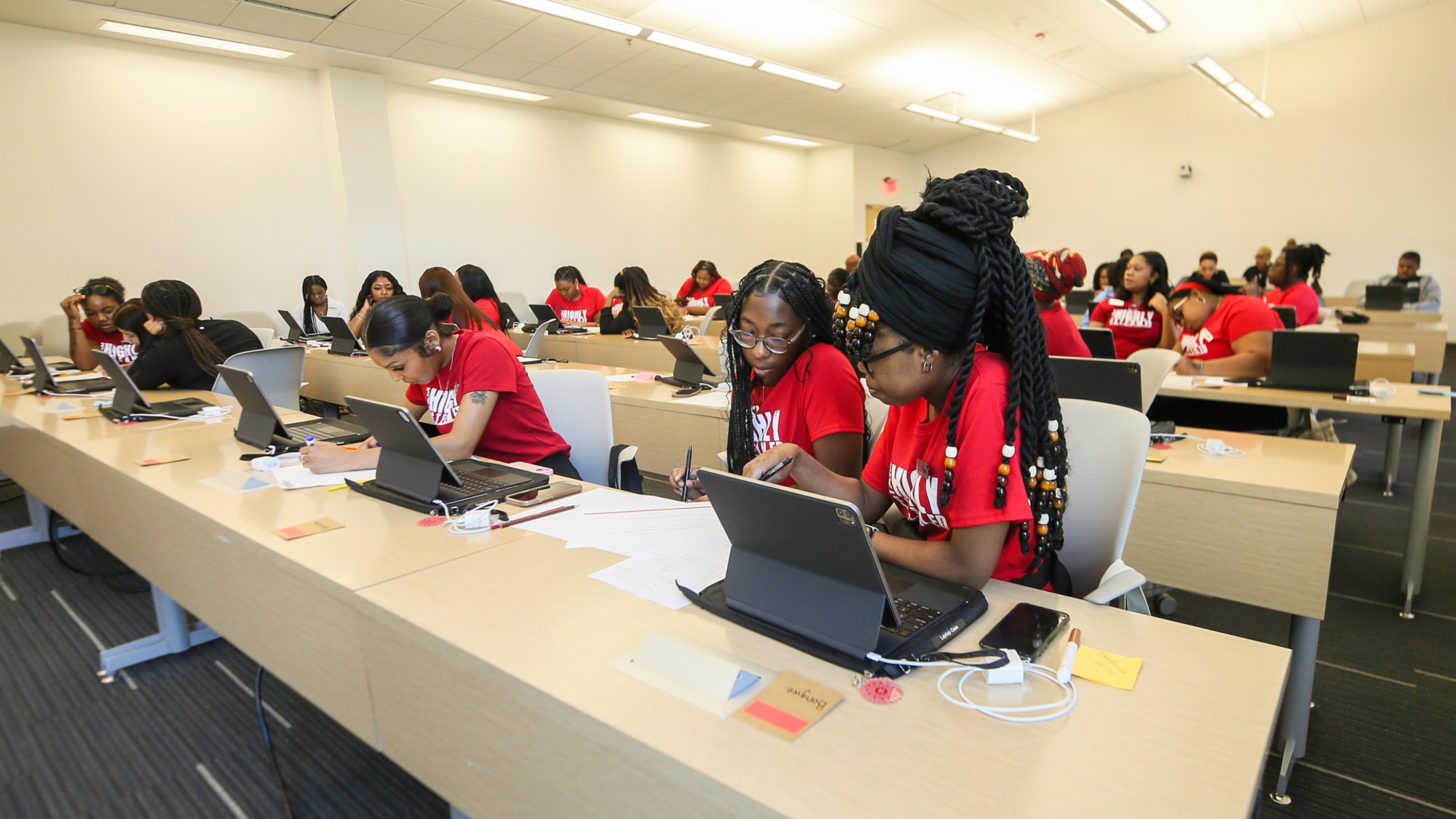The misery of Donald Trump
Are we having fun yet?


You could see it in the president's face as he listened to Canadian Prime Minister Justin Trudeau explain the strong bonds that tie our two countries together.
You could see it at Mar-a-Lago, during an impromptu appearance with Japanese Prime Minister Shinto Abe.
You can see it, actually, every time Trump appears in public. He seems exhausted — and miserable.
The Week
Escape your echo chamber. Get the facts behind the news, plus analysis from multiple perspectives.

Sign up for The Week's Free Newsletters
From our morning news briefing to a weekly Good News Newsletter, get the best of The Week delivered directly to your inbox.
From our morning news briefing to a weekly Good News Newsletter, get the best of The Week delivered directly to your inbox.
You can hear it, too. When you're tired, you revert to stock phrases and canned responses. During the Trudeau press conference, Trump was asked four easy questions, and his answers grappled for coherence (even more than usual). On Syrian refugees potentially entering the United States, he strung together a bunch of phrases about immigration and ended with a signature (and weakly delivered) note of self-praise.
Trump seems utterly exhausted and just plain miserable. His staff is also surely miserable. Many do not like him. More importantly, they don't trust him. They don't trust Stephen Bannon to translate his core hunches into policy, with only a few exceptions. They compete for Trump's affections by throwing each other under whatever buses might be rolling by. They leak to their favorite reporters.
The president borrows his temperament from A Confederacy of Dunces' Ignatius J. Reilly. He craves spontaneity and stimulation, lives in a world of his own imagining, and is also beset by anxiety and germophobia.
But being the president means that he is not, in fact, in a world he can create. He can't tame his schedule, which is intense — purposefully so, because his staff wants to create the impression that he is working hard, and fast, to keep his promises. He can't decide who he talks to, and when, and gets reproached every time he seems to speak his mind.
A free daily email with the biggest news stories of the day – and the best features from TheWeek.com
There were no adoring crowds feeding his energy when he allegedly hung up on the prime minister of Australia, or when he had to listen to a lecture by German President Angela Merkel about the Geneva Convention. Certainly, the decision to cut ties with erstwhile National Security Adviser Michael Flynn was greeted not with cheers, but by pitchfork-wielding mobs of critics.
For a president who craves adulation and praise, the presidency has him drowning in misery.
This misery might matter less if the president and his staff shared a purpose that was ennobling. But that purpose — total disruption, the creation of the media as an enemy state — is inherently unstable. It's a poor man's gloss on a real governing philosophy.
Marc Ambinder is TheWeek.com's editor-at-large. He is the author, with D.B. Grady, of The Command and Deep State: Inside the Government Secrecy Industry. Marc is also a contributing editor for The Atlantic and GQ. Formerly, he served as White House correspondent for National Journal, chief political consultant for CBS News, and politics editor at The Atlantic. Marc is a 2001 graduate of Harvard. He is married to Michael Park, a corporate strategy consultant, and lives in Los Angeles.
-
 Breaking news: the rise of ‘smash hit’ rage rooms
Breaking news: the rise of ‘smash hit’ rage roomsUnder the Radar Paying to vent your anger on furniture is all the rage but experts are sceptical
-
 Did markets’ ‘Sell America’ trade force Trump to TACO on Greenland?
Did markets’ ‘Sell America’ trade force Trump to TACO on Greenland?Today’s Big Question Investors navigate a suddenly uncertain global economy
-
 ‘We know how to make our educational system world-class again’
‘We know how to make our educational system world-class again’Instant Opinion Opinion, comment and editorials of the day
-
 The billionaires’ wealth tax: a catastrophe for California?
The billionaires’ wealth tax: a catastrophe for California?Talking Point Peter Thiel and Larry Page preparing to change state residency
-
 Bari Weiss’ ‘60 Minutes’ scandal is about more than one report
Bari Weiss’ ‘60 Minutes’ scandal is about more than one reportIN THE SPOTLIGHT By blocking an approved segment on a controversial prison holding US deportees in El Salvador, the editor-in-chief of CBS News has become the main story
-
 Has Zohran Mamdani shown the Democrats how to win again?
Has Zohran Mamdani shown the Democrats how to win again?Today’s Big Question New York City mayoral election touted as victory for left-wing populists but moderate centrist wins elsewhere present more complex path for Democratic Party
-
 Millions turn out for anti-Trump ‘No Kings’ rallies
Millions turn out for anti-Trump ‘No Kings’ ralliesSpeed Read An estimated 7 million people participated, 2 million more than at the first ‘No Kings’ protest in June
-
 Ghislaine Maxwell: angling for a Trump pardon
Ghislaine Maxwell: angling for a Trump pardonTalking Point Convicted sex trafficker's testimony could shed new light on president's links to Jeffrey Epstein
-
 The last words and final moments of 40 presidents
The last words and final moments of 40 presidentsThe Explainer Some are eloquent quotes worthy of the holders of the highest office in the nation, and others... aren't
-
 The JFK files: the truth at last?
The JFK files: the truth at last?In The Spotlight More than 64,000 previously classified documents relating the 1963 assassination of John F. Kennedy have been released by the Trump administration
-
 'Seriously, not literally': how should the world take Donald Trump?
'Seriously, not literally': how should the world take Donald Trump?Today's big question White House rhetoric and reality look likely to become increasingly blurred
